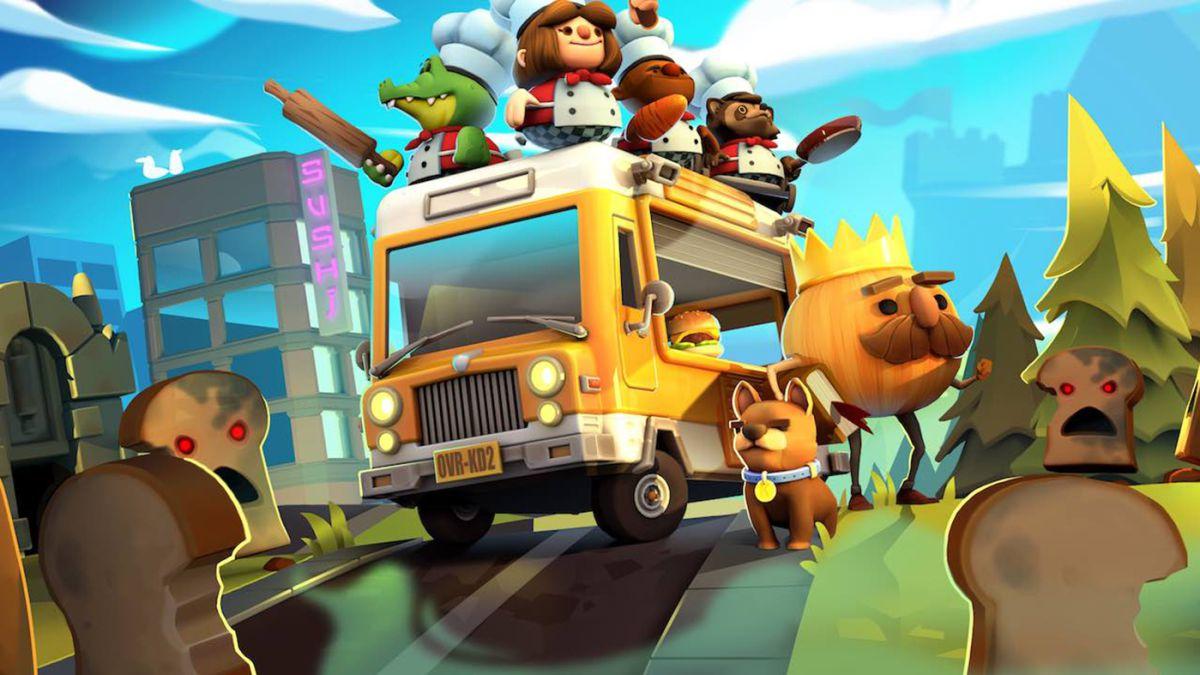Best games with cooperative multiplayer sets the stage for this enthralling narrative, offering readers a glimpse into a story that is rich in detail and brimming with originality from the outset. Cooperative multiplayer games have become increasingly popular in recent years, offering a unique and engaging way for players to connect and work together.
This guide will explore the benefits, challenges, and various types of cooperative multiplayer games, providing valuable insights for both players and game designers alike.
From fostering teamwork and communication to providing social and psychological benefits, cooperative multiplayer games offer a myriad of advantages. However, designing these games presents its own set of challenges, such as balancing difficulty and player roles. Understanding these challenges is crucial for creating cooperative multiplayer games that are both enjoyable and rewarding.
Definition of Cooperative Multiplayer Games: Best Games With Cooperative Multiplayer

Cooperative multiplayer games are a genre of video games that allow players to work together to achieve a common goal. These games typically feature a team of players who must cooperate to overcome challenges, solve puzzles, and defeat enemies.
Cooperative multiplayer games can be played online or offline, and they can be found on a variety of platforms, including PCs, consoles, and mobile devices. Some of the most popular cooperative multiplayer games include:
- Left 4 Dead
- Borderlands
- Destiny
- Fortnite
- Apex Legends
Key Features of Cooperative Multiplayer Games
Cooperative multiplayer games typically share a number of key features, including:
- Teamwork: Players must work together to achieve their goals. This often requires communication and coordination.
- Problem-solving: Cooperative multiplayer games often require players to solve puzzles or overcome challenges. This can require creativity and teamwork.
- Combat: Many cooperative multiplayer games feature combat against enemies. This can require skill and teamwork to defeat enemies.
- Progression: Cooperative multiplayer games often feature a sense of progression, as players level up and unlock new abilities.
Benefits of Cooperative Multiplayer Games

Cooperative multiplayer games offer numerous social and psychological benefits. They foster teamwork, communication, and problem-solving skills. Players learn to work together towards a common goal, developing a sense of camaraderie and mutual respect.
Teamwork and Communication, Best games with cooperative multiplayer
Cooperative multiplayer games require players to communicate effectively and coordinate their actions. They learn to adapt to different playstyles, share information, and support each other. This can improve their communication skills outside of the game, leading to better relationships and teamwork in other areas of life.
Challenges in Designing Cooperative Multiplayer Games

Designing cooperative multiplayer games presents unique challenges that require careful consideration to ensure a balanced and engaging experience for players.
One of the primary challenges lies in striking the right balance between difficulty and accessibility. Cooperative games must be challenging enough to provide a sense of accomplishment, but not so difficult that players become frustrated or overwhelmed.
Balancing Difficulty
Balancing difficulty involves adjusting various factors, such as enemy strength, level design, and resource availability, to create a game that is challenging but not insurmountable. It requires playtesting and feedback from players to fine-tune the difficulty level and ensure that it aligns with the intended target audience.
Defining Player Roles
Another challenge in designing cooperative multiplayer games is defining clear and distinct roles for each player. This involves creating characters or classes with unique abilities and responsibilities that complement each other. Assigning specific roles helps players specialize in certain tasks, fostering teamwork and strategic decision-making.
Common Pitfalls and Mistakes
Some common pitfalls and mistakes in cooperative multiplayer game design include:
- Lack of Communication:Failing to provide adequate communication tools or encouraging player interaction can hinder teamwork and lead to frustration.
- Unclear Objectives:Ambiguous or poorly defined objectives can leave players confused and unsure of their purpose, resulting in disorganization and a lack of focus.
li> Ineffective Teamwork:If the game mechanics or level design do not encourage or facilitate teamwork, players may end up working independently, undermining the cooperative aspect of the game.
Types of Cooperative Multiplayer Games

Cooperative multiplayer games offer a wide range of experiences, catering to different preferences and gameplay styles. These games can be broadly categorized into several distinct types, each with its own unique characteristics and mechanics.
The following table provides an overview of the various types of cooperative multiplayer games, along with examples to illustrate their key features and gameplay elements:
| Type | Description | Examples |
|---|---|---|
First-person shooters (FPS) | FPS games involve cooperative gameplay where players take on the roles of first-person characters and engage in combat against AI-controlled enemies or other players in a team-based setting. |
|
Third-person shooters (TPS) | Similar to FPS games, TPS games offer a third-person perspective, allowing players to control their characters from an over-the-shoulder or behind-the-back viewpoint. |
|
Role-playing games (RPGs) | RPGs focus on character development, storytelling, and exploration. Cooperative RPGs allow players to team up and embark on quests, fight enemies, and progress through the game’s narrative together. |
|
Massively multiplayer online games (MMOs) | MMOs are persistent online worlds where players can interact, form guilds, and participate in large-scale cooperative events or raids against challenging bosses or enemies. |
|
Strategy games | Strategy games emphasize resource management, decision-making, and tactical combat. Cooperative strategy games allow players to work together to conquer territories, build bases, and outmaneuver opponents. |
|
Simulation games | Simulation games replicate real-world activities or environments, allowing players to experience cooperative gameplay in settings such as farming, city-building, or flight simulation. |
|
Party games | Party games are designed for casual, social multiplayer experiences. They often feature simple gameplay mechanics and focus on fun and laughter among players. |
|
These categories are not mutually exclusive, and some games may combine elements from multiple types. The variety of cooperative multiplayer games ensures that there is something to suit every player’s preferences and gaming style.
Outcome Summary

As the future of cooperative multiplayer gaming unfolds, emerging trends and technologies are shaping the landscape. From cross-platform play to virtual reality integration, the possibilities for cooperative multiplayer experiences are limitless. By embracing these advancements and continuing to innovate, game developers can create even more immersive and engaging cooperative multiplayer games that will captivate players for years to come.
Expert Answers
What are the key features of cooperative multiplayer games?
Cooperative multiplayer games typically feature shared goals, player interdependence, and communication mechanics that enable players to work together effectively.
What are the benefits of playing cooperative multiplayer games?
Cooperative multiplayer games can foster teamwork, communication, problem-solving skills, and social connections.
What are some common challenges in designing cooperative multiplayer games?
Balancing difficulty, ensuring player roles are meaningful, and preventing griefing are some of the challenges faced by designers of cooperative multiplayer games.
